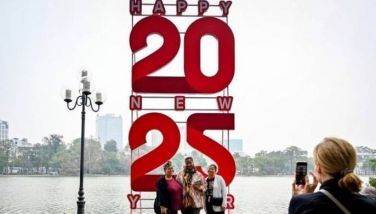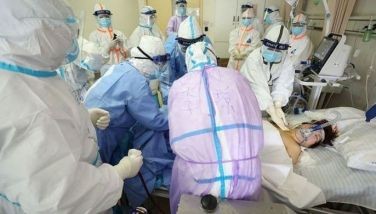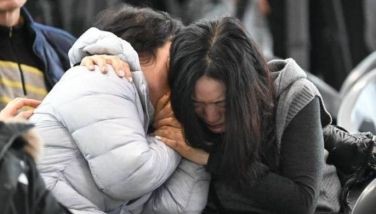National unity gov't proposed as way out of Thai crisis
BANGKOK (Xinhua) - In bid to solve Thailand's chronic political conflict, a former leading government whip has proposed the setting up of a national unity government under the leadership of an elected Member of Parliament (MP) as interim prime minister.
Amnuay Klangpa, a five-time member of parliament (MP) of the Pheu Thai (for Thais) Party, core of the current caretaker government, has called on all parties to compromise on their different principles, sacrifice their partisan interests and return to nationwide polls through which the "national unity government" could be set up.
Unlike persistent demands of anti-government protesters for the installation of a "neutral" but non-elected premier, Amnuay said his proposal is substantially democratic and could work only if all parties are willing to compromise for the good of the country.
"It's time for all parties to make sacrifices, bury the hatchet and stop their disputes once and for all. They should instead prepare themselves to contest a new election and finally join hands to set up a national unity government," Amnuay said.
He said that under such unity government, there should be no opposition bloc in parliament and all parties, which may have candidates elected to the lower house, could sit on a post- election Cabinet of ministers.
"The national government should be headed by an elected legislator in accordance with the Constitution and run the country entirely on provisional basis which may only last a three- to six- months time during which national reforms are to be completed as currently demanded," Amnuay said.
According to the former government whip, a group of 20 elected lawmakers should be represented by one person to sit on the post- election Cabinet under the leadership of a premier who is to be picked from among the elected MPs.
Besides, the premier may name several non-elected persons as members of his Cabinet who should represent varied political activists, including those from the anti-government and pro- government demonstrators, and other members of the public outside parliament, Amnuay suggested.
Importantly, he said, the national reforms should not last longer than six months because, he said, most MPs already have had experiences in rewriting and amending legislations in order to meet varied demands of those pushing for the reforms.
Amnuay said that it would take three months to six months for the MPs to institute reforms based on inputs from various political and socio-civic groups.
Immediately after the reforms have been instituted, the premier should dissolve parliament and call a snap election in a 45- to 60- days time in accordance with the constitution so that a fully- active, post-election government will be set up, he suggested.
Finally, the ruling powers will be returned to the people to decide for themselves who should be given the leading role in the running of a newly-reformed country, he said.
The ex-government whip said a large number of ex-MPs of various parties, including the Pheu Thai Party, had tacitly and informally agreed to his proposal.
"My proposal obviously abides by democratic rule, no matter how much it might compromise the principles and partisan interests of some political parties," Amnuay said.
He added that he will continue to persuade his colleagues and the Thai public to support his proposed "national unity government" with an elected MP as caretaker premier as opposed to the "non-elected and neutral" premier espoused by the opposition.
But it remains to be seen how soon the new election will eventually take place although the Election Commission has tentatively scheduled it for July 20.
The poll agency has had difficulties meeting with the caretaker government anywhere in the Thai capital to discuss the election issue since the anti-government protesters have forcibly stood in the way.
- Latest
- Trending
































